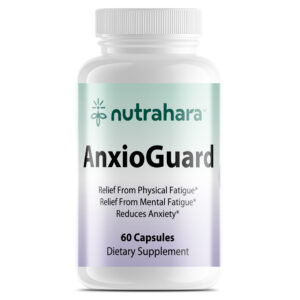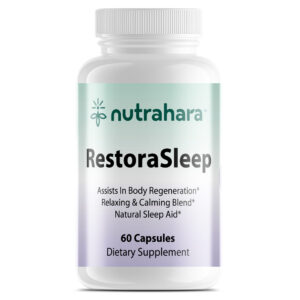
Nutrahara Blog
Nutrahara Blog
Proven Tips to Reduce Stress for Women Over 40
Section I. Introduction
In the bustling world of wellness advice, one often overlooked aspect is the nuanced journey of women over 40 navigating the maze of stress management. While stress affects individuals of all ages and genders, its impact on women in this demographic is particularly multifaceted and profound. From fluctuating hormones to societal pressures, the stressors women over 40 face are as diverse as they are relentless. Keep reading for the tip to reduce stress.
The Myth of “Superwoman”
Women, especially those in their 40s and beyond, often find themselves trapped in the myth of “Superwoman.” Expected to excel in their careers, maintain thriving relationships, and uphold the household, the pressure to juggle multiple roles seamlessly can take a toll on their mental and physical well-being. Despite the facade of strength and resilience, many women silently struggle with the weight of these expectations, leading to heightened stress levels.
Hormonal Harmony and Stress
Beyond societal expectations, women over 40 contend with the intricate dance of hormonal changes. Perimenopause and menopause bring a host of physical and emotional shifts, often exacerbating stress levels. Fluctuating estrogen levels can trigger mood swings, insomnia, and heightened anxiety, further complicating the stress management equation. Understanding the interplay between hormones and stress is crucial for tailoring effective coping strategies that address the root cause of the issue.
Section II. Exercise for Stress Relief
Physical activity is not only essential for maintaining overall health and vitality but also serves as a potent antidote to the daily stresses of life. For women over 40, incorporating regular exercise into their routine can be a game-changer in managing stress and promoting well-being.
Incorporating Regular Physical Activity
Regular aerobic exercise brings positive changes to the body, metabolism, heart, and spirits. Aerobic exercise has a unique capacity to relax and exhilarate, providing both stimulation and calm. This Harvard Health article Exercising to Relax highlights the profound benefits of exercise in stress reduction.
Benefits of Exercise for Stress Reduction:
– Releases endorphins, the body’s natural mood lifters, promoting feelings of euphoria and well-being.
– Reduces levels of stress hormones, such as cortisol, while increasing production of neurotransmitters that regulate mood.
– Improves sleep quality, helping women over 40 achieve deeper, more restorative sleep.
– Boosts self-confidence and self-esteem, empowering women to tackle stressors with resilience and optimism.
Types of Exercises Suitable for Women Over 40:
– Aerobic Exercise: Engage in activities like brisk walking, jogging, swimming, or cycling to elevate heart rate and promote cardiovascular health.
– Strength Training: Incorporate resistance training exercises using weights, resistance bands, or bodyweight exercises to build muscle strength and improve bone density.
– Yoga and Pilates: Embrace mind-body practices that combine physical postures, breathwork, and mindfulness to enhance flexibility, balance, and mental clarity.
Fun Ways to Stay Active
Staying active doesn’t have to feel like a chore; it can be a joyful and fulfilling experience that nourishes both body and soul. Here are some enjoyable ways for women over 40 to stay active and relieve stress:
– Dance Classes: Join a dance class, whether it’s salsa, Zumba, or belly dancing, to groove to the rhythm and let loose.
– Outdoor Adventures: Explore nature by hiking scenic trails, kayaking along tranquil waters, or embarking on a cycling adventure through picturesque landscapes.
– Group Fitness: Participate in group fitness classes tailored to women’s needs, such as low-impact aerobics, barre, or indoor cycling, for camaraderie and motivation.
By embracing a diverse range of physical activities, women over 40 can discover the joy of movement while reaping the countless benefits that exercise offers for stress relief and overall well-being.
Section III. Meditation and Mindfulness Practices
In the fast-paced world of modern living, cultivating moments of stillness and presence through meditation and mindfulness practices is essential for women over 40 to combat stress and nurture inner peace.
Introduction to Meditation
Meditation is a powerful tool for calming the mind, reducing stress, and promoting emotional well-being. It involves training the mind to focus attention and cultivate awareness of the present moment.
Benefits of Meditation:
– Stress Reduction: Meditation activates the body’s relaxation response, lowering heart rate, blood pressure, and levels of stress hormones like cortisol.
– Emotional Regulation: Regular meditation practice enhances emotional resilience, helping women over 40 navigate life’s challenges with greater equanimity and clarity.
– Improved Concentration: By training the mind to sustain attention on the present moment, meditation sharpens focus and enhances cognitive function.
– Enhanced Well-being: Cultivating a regular meditation practice fosters a sense of inner peace, contentment, and overall well-being.
Mindful Living Tips
Incorporating mindfulness into daily routines empowers women over 40 to cultivate greater awareness, presence, and resilience in the face of stressors.
Tips for Practicing Mindfulness:
– Mindful Breathing: Take moments throughout the day to pause and focus on the sensation of breathing, anchoring attention to the present moment.
– Body Scan Meditation: Conduct a body scan meditation, systematically bringing awareness to each part of the body, releasing tension and promoting relaxation.
– Mindful Eating: Practice mindful eating by savoring each bite, paying attention to taste, texture, and sensations, fostering a deeper connection to nourishment and satisfaction.
– Gratitude Practice: Cultivate gratitude by reflecting on moments of joy, beauty, and connection, fostering a positive outlook and resilience in the face of challenges.
By integrating meditation and mindfulness practices into their daily lives, women over 40 can nurture a sense of inner calm, resilience, and vitality, empowering them to navigate life’s complexities with grace and presence.
Section IV. Prioritizing Quality Sleep
Quality sleep is not just a luxury but a fundamental pillar of health and well-being, particularly for women over 40 grappling with the demands of daily life and managing stressors effectively.
Importance of Adequate Sleep
Research published in the article Sleep duration and its correlates in middle-aged and elderly Chinese women: the China Health and Retirement Longitudinal Study underscores the critical role of sleep in stress management. Stress awareness is associated with short sleep duration, emphasizing the need for women over 40, especially those in specialized or office-based professions, to prioritize adequate sleep for effective stress management.
Impact of Sleep Deprivation on Stress Levels:
– Heightened Stress Response: Sleep deprivation disrupts the body’s stress response system, leading to increased levels of cortisol and heightened reactivity to stressors.
– Impaired Cognitive Function: Lack of sleep compromises cognitive function, impairing decision-making, problem-solving, and emotional regulation, exacerbating stress levels.
– Weakened Immune Function: Chronic sleep deprivation suppresses immune function, making women more susceptible to illnesses and infections, further adding to stress levels.
Creating a Relaxing Sleep Environment
Creating a conducive sleep environment is essential for promoting quality sleep and managing stress effectively.
Tips for Improving Sleep Quality:
– Optimize Bedroom Environment: Ensure the bedroom is cool, dark, and quiet, free from distractions like electronic devices or excessive noise that can disrupt sleep.
– Establish Bedtime Routine: Develop a relaxing bedtime routine to signal to the body that it’s time to wind down, incorporating activities like reading, gentle stretching, or taking a warm bath.
– Limit Screen Time: Minimize exposure to screens, such as smartphones, tablets, or computers, in the hours leading up to bedtime, as the blue light emitted can interfere with the body’s natural sleep-wake cycle.
– Practice Relaxation Techniques: Engage in relaxation techniques, such as deep breathing, progressive muscle relaxation, or guided imagery, to calm the mind and body before sleep.
By prioritizing quality sleep and implementing strategies to create a restful sleep environment, women over 40 can effectively manage stress, enhance resilience, and optimize overall health and well-being.
Section V. Nourishing the Body with Healthy Nutrition
Nutrition plays a pivotal role in managing stress and promoting overall well-being, making mindful food choices essential for women over 40 seeking to cultivate resilience and vitality.
Balanced Diet for Stress Management
Adopting a balanced diet rich in nutrient-dense foods is foundational for supporting stress reduction and enhancing overall health.
Key Components of a Stress-Reducing Diet:
– Whole Grains: Incorporate whole grains, such as quinoa, brown rice, and oats, which provide sustained energy and stabilize blood sugar levels, promoting a stable mood and reducing stress.
– Lean Proteins: Include lean sources of protein, such as poultry, tofu, fish, and legumes, which provide essential amino acids necessary for neurotransmitter synthesis and mood regulation.
– Healthy Fats: Choose sources of healthy fats, such as nuts, avocados, seeds, and olive oil, which support brain health and reduce inflammation, mitigating the impact of stress on the body.
– Fruits and Vegetables: Load up on a colorful array of fruits and vegetables rich in vitamins, minerals, and antioxidants, which bolster immune function and combat oxidative stress caused by chronic stress.
Mindful Eating Practices
In addition to focusing on nutrient-rich foods, adopting mindful eating practices can further enhance the stress-reducing benefits of nutrition.
Tips for Mindful Eating:
– Eat Slowly: Take time to savor each bite, chewing slowly and mindfully to fully appreciate the flavors and textures of the food.
– Listen to Hunger Cues: Pay attention to hunger and fullness cues, eating when hungry and stopping when satisfied to prevent stress-related overeating.
– Avoid Emotional Eating: Be mindful of emotional triggers that may lead to overeating, finding alternative coping strategies such as deep breathing, journaling, or going for a walk.
– Practice Gratitude: Cultivate gratitude for the nourishing foods on your plate, appreciating the abundance and vitality they provide to support your well-being.
By nourishing the body with a balanced diet rich in nutrient-dense foods and practicing mindful eating habits, women over 40 can fortify their resilience against stress, enhance mood stability, and optimize overall health and vitality.
Section VI. Relaxation Techniques
Incorporating relaxation techniques into daily life offers women over 40 valuable tools for reducing stress, promoting inner calm, and fostering overall well-being.
Deep Breathing Exercises
Deep breathing exercises serve as a simple yet powerful technique for calming the mind, reducing tension, and inducing relaxation.
Benefits of Deep Breathing:
– Activates Relaxation Response: Deep breathing triggers the body’s relaxation response, lowering heart rate, blood pressure, and cortisol levels.
– Promotes Mind-Body Connection: Focusing on the breath enhances mindfulness and cultivates awareness of the present moment, reducing rumination and anxiety.
– Improves Oxygenation: Deep breathing increases oxygen flow to the brain, promoting mental clarity, concentration, and emotional balance.
Step-by-Step Guide to Deep Breathing:
– Find a comfortable seated or lying position, placing one hand on your abdomen and the other on your chest.
– Inhale deeply through your nose, allowing your abdomen to rise as you fill your lungs with air.
– Exhale slowly and fully through your mouth, feeling your abdomen contract as you release the breath.
– Continue this rhythmic pattern of deep breathing for several minutes, focusing on the sensation of the breath moving in and out of your body.
Progressive Muscle Relaxation
Progressive muscle relaxation is a systematic technique for releasing muscle tension and promoting physical and mental relaxation.
Benefits of Progressive Muscle Relaxation:
– Relieves Physical Tension: Progressive muscle relaxation systematically targets and releases tension in major muscle groups, promoting relaxation and reducing physical discomfort.
– Calms the Mind: By focusing on the sensations of relaxation in the body, progressive muscle relaxation redirects attention away from stressors, fostering a sense of inner calm and tranquility.
– Enhances Sleep Quality: Practicing progressive muscle relaxation before bedtime can promote deeper, more restful sleep, easing insomnia and promoting overall well-being.
How to Practice Progressive Muscle Relaxation:
– Find a quiet, comfortable space where you can lie down or sit comfortably without distractions.
– Starting with your toes, tense the muscles in each body part for 5-10 seconds, then release the tension completely, allowing the muscles to relax fully.
– Continue this process, moving systematically through each muscle group in your body, from your feet to your head, focusing on the sensations of relaxation with each release of tension.
Incorporating these relaxation techniques into your daily routine empowers women over 40 to proactively manage stress, promote relaxation, and enhance overall well-being. Experiment with different techniques to discover which ones resonate most with you, and prioritize self-care as an essential component of stress management.
Section VII. Testimonials and Real-Life Experiences
Real-life testimonials offer valuable insights and inspiration for women over 40 seeking to manage stress and prioritize their well-being. Hearing from others who have navigated similar challenges can provide encouragement, guidance, and hope on the journey towards stress resilience.
Personal Stories of Triumph
Insights and wisdom from women who have successfully managed stress:
– Jane’s Journey: “After years of juggling a demanding career and family responsibilities, I hit a breaking point with stress and burnout. Through mindfulness practices and prioritizing self-care, I’ve learned to navigate stress more effectively and prioritize my well-being.”
– Maria’s Reflection: “Navigating perimenopause brought a host of physical and emotional challenges, leaving me feeling overwhelmed and depleted. Through the support of friends and professionals, I’ve embraced self-compassion and resilience, finding strength in vulnerability and connection.”
– Sarah’s Testimony: “As a single mother navigating the complexities of raising a teenager while managing a full-time job, stress was a constant companion. Through therapy and support groups, I’ve learned to set boundaries, prioritize self-care, and embrace the power of community in navigating life’s challenges.”
Encouragement and Empowerment
Words of encouragement and empowerment for women on their journey:
– You’re Not Alone: “Remember that you’re not alone in facing life’s challenges. Reach out to trusted friends, family members, or professionals for support and guidance.”
– Embrace Self-Compassion: “Be gentle with yourself and practice self-compassion as you navigate stress and adversity. Embracing vulnerability and seeking support are signs of strength, not weakness.”
– Prioritize Your Well-being: “Make self-care a priority in your life, and don’t hesitate to advocate for your needs. Your well-being matters, and investing in yourself is essential for navigating life’s ups and downs with grace and resilience.”
By sharing personal stories, insights from experts, and words of encouragement, women over 40 can find inspiration, guidance, and support on their journey towards stress resilience and holistic well-being. Together, we can empower each other to thrive, no matter what challenges life may bring.
Section VIII. Conclusion
In the fast-paced and demanding world of modern living, prioritizing quality sleep and stress management is not just a luxury but a necessity, especially for women over 40 navigating the complexities of work, family, and personal well-being. Throughout this journey, we’ve explored a holistic approach to stress management, encompassing physical, emotional, and social aspects of well-being.
Written by the Nutrahara Team
This article was prepared by the expert team at Nutrahara, which includes experienced nutrition scientists and naturopaths dedicated to advancing women’s health through natural wellness solutions. We combine scientific research with holistic practices to help you live your healthiest life.
Connect with us on LinkedIn to stay updated on the latest in women’s health and wellness.










